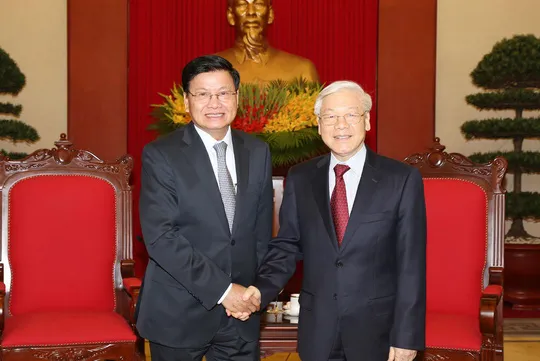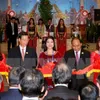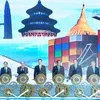Vietnam, Lao upbeat about growing ties

On February 7, Party General Secretary Nguyen Phu Trong received Lao Prime Minister Thongloun Sisoulith in Hanoi.
The guest affirmed his nation's determination to work hand in hand with Vietnam to develop socio-economic cooperation between the two countries on par with their sound political relations and direct ministries, sectors and localities to implement agreements reached by the two countries’ senior Party and State leaders as well as those to be signed during the 39th Meeting of the Vietnam-Laos Inter-Governmental Committee.
He thanked Vietnam’s support for Laos over the past years and congratulated Vietnam on the achievements it has recorded so far.
The Lao PM also conveyed New Year wishes of Lao Party General Secretary and President Bounhang Volachith to the Vietnamese Party leader.
Trong for his part praised the effective cooperation between the two Governments in recent time and suggested that during the 39th Meeting of the Vietnam-Laos Inter-Governmental Committee both sides should focus on seeking active coordination measures to effectively actualize the Vietnam-Laos Joint Statements, bilateral agreements and cooperation programmes and plans.
It is essential to review and fine-tune collaboration policies and mechanisms, while devising concrete measures to ensure quality and progress of Vietnamese projects in Laos, and spur sustainable growth of economic ties, he said.
The two countries need to enhance connectivity in economy, transport infrastructure and energy as well as create drastic changes in education and training cooperation quality, Trong told his guest.
During the meeting, the two leaders pledged to work together to maintain and promote the ties and educate younger generations on these special relations.





